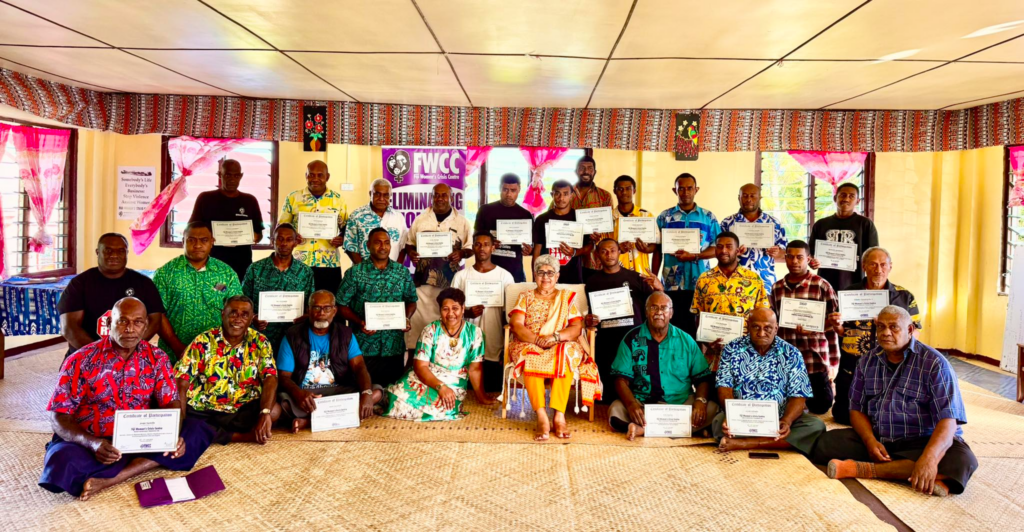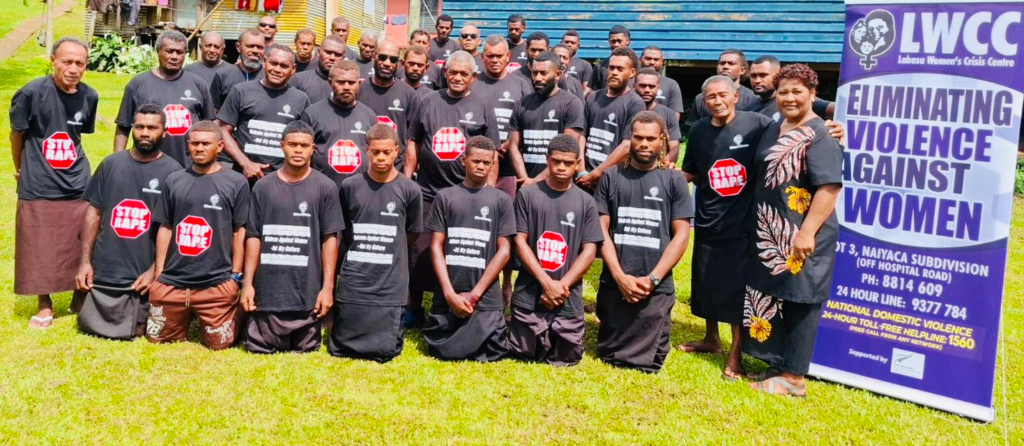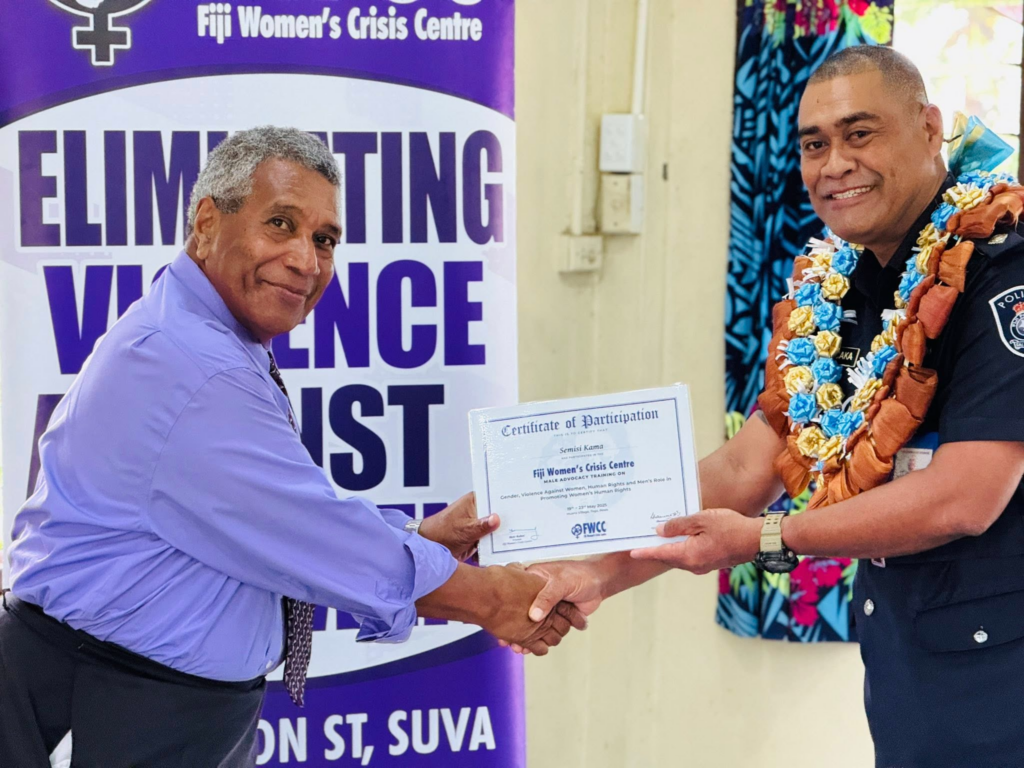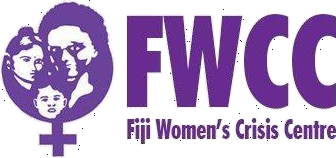Male Advocacy for Women’s Human Rights milestone
14 Jul, 2025

One hundred men from Rewa and Cakaudrove have completed the Male Advocacy for Women’s Human Rights training conducted by the Fiji Women’s Crisis Centre this year. This initiative aims to cultivate a cadre of community advocates committed to ending all forms of violence against women, girls, and children, ending discrimination against women and girls, and promoting gender equality.
In April, week-long awareness sessions were held for 40 men in Naviavia, Wailevu West, Cakaudrove. Additionally, two separate training sessions took place in Rewa this year: one for 23 men from three villages in the Toga district and another for 40 men in the village of Namakala, located on the outskirts of Lami.
Awareness sessions are held first with women in these areas before the men, as it is these women who will play a key role in holding the men accountable.

In follow-up focus group discussions conducted by the FWCC’s community education team, both women and men shared their experiences regarding changes in their lives. Many women reported that their husbands are now helping with housework and are showing greater understanding.
One man shared that he now accompanies his wife when she goes fishing and tries to have dinner ready for her when she returns, especially on the days she goes out to sea alone.
Shamima Ali, Coordinator of the FWCC, says the male advocacy training promotes introspection and encourages men to reflect on issues of gender equality and women’s human rights in all areas of their lives, including at home, in the community, in traditional settings, and at work.
“This work involves engaging men in efforts to eliminate violence against women from a rights-based approach. A key element is for these men to first change their own behavior and thinking towards women and girls before they can influence other men,” said Shamima.
The FWCC led the development of the Male Advocacy for Women’s Human Rights program with leaders of the Pacific Women’s Network Against Violence Against Women. The Male Advocacy Program has been used in Fiji, Tonga, Vanuatu, Solomon Islands, Papua New Guinea, and the Cook Islands. It is designed to encourage men to question and reflect on their behaviour regarding gender inequality and violence against women before they can effectively support efforts to tackle these issues.
In 2011, the Male Advocacy for Women’s Human Rights Handbook was launched. A home-grown Pacific initiative, this handbook is one of the first of its kind in the world.
The Male Advocacy for Women’s Human Rights program was officially launched in 2002 and has been refined over the years, drawing from best practices worldwide and adapting them to the Pacific context.
In 2020, the Pacific Women’s Network Against Violence Against Women and UN Women Fiji Multi-Country Office launched the Warwick Principles: Best Practices for Engaging Men and Boys in Preventing Violence Against Women and Girls. This outlines seven key principles developed by and for Pacific communities, grounded in the experiences of women and girls:
1) Be accountable to the women’s movement in the Pacific.
2) Do no harm.
3) Be grounded in a human-rights-based approach.
4) Be evidence-based and evidence-building.
5) Be inclusive and intersectional.
6) Be gender-transformative.
7) Be informed by context.
These principles are the culmination of a series of regional consultations and meetings held from 2016 to 2019.
The Male Advocacy program is seen as a major prevention strategy for eliminating violence against women and girls.
Ends

[Photo; FWCC]
